Moving to a new country can certainly be a very strong life experience. No matter how much I was travelling before, and all the knowledge and experience I had accumulated on intercultural learning, culture shock and stuff like that, the fact of actually moving to Prague, Czech Republic in 2015 still hit me like a truckload of bricks.
Granted, Prague is a wonderful place to live in (and one of the main tourist destinations in Europe) and I don’t regret at all my decision. Still, at times it may be hard. That’s why I decided to write this post which will be a bit more silly than the rest of the stories I publish on this blog.
Hope is, this may help others not to make the same mistake and never leave home to adapt more easily when moving to a different country. Or maybe not, but it feels very liberating to be able to put these thoughts in plain text. And anyway, learning about a different culture is also the best way to learn about our own culture, and ourselves.

A bit of a disclaimer here: I certainly don’t want to offend anybody. The post intends to be humourous and has to be read with a bit of a satirical tone in mind. Plus, if you think that my observations are not complete and comprehensive, it’s because they aren’t. They are just that: observations.
If in the post there is something that offsets you – hey, peace. We can breathe the same air and have different opinions on stuff. Hard to believe, but it’s possible. Maybe you don’t like the music, but please don’t shoot the pianist.
Edit (after 3 days and about 5,000 visits):
A BIT MORE DISCLAIMING. As I feared, the first wasn’t enough. The post got an unexpected visibility (great!) and with visibility, come people who read quickly and are willing to get offended even more quickly (not so great!). To hopefully end the arguments, the meaning of the word “satire” can be found here.
*
Anyway, ready for the list? Here we go!
1) For Czech Republic, Prague is “The Capitol” from The Hunger Games.
In Italy, Rome is the political capital, but there are many main cities with their own distinct identity, and sometimes something interesting happens there too (except in Viterbo, because nothing ever happens there). It’s like the country has more than one centre of gravity, and it’s fine.
But here in the Czech Republic, Prague is really THE city. Everything happens there, and all the power seems to be concentrated in one place. Politics, culture, media, jobs, opportunities. People just live different lives than in the rest of the country, can do strange things like being vegan or have an Asian brunch, they wear fancy clothes and have blue or purple hair.
Prague natives are also somewhat proud of their local accent (which to me sounds funnier, slower, with longer vowels, and seems to be really hated by everybody else in the country).
Salaries are way higher than anywhere else, but so is rent (like two, three times more), eating out and basically everything else.

But if you travel just outside of the city, you will enter a different country. Small-town Czech Republic will present different challenges of course (be prepared to attract puzzled looks as a foreigner, and almost nobody will understanding a word of English, for example), but it will also provide with unique rewards and many hidden gems.
Like having a full meal or a round of beers for an incredible price. Or meeting people who love to live a simpler, slower life and will be genuinely interested in hearing about you. I had experiences especially in the area around Brno and Ostrava. New companies, farms, NGOs and the local university are very active to create an alternative to the “Capitol City” lifestyle.
If you love art and history, the country has the highest concentration of perfectly preserved castles in Europe, apparently. And the nature is also really diverse, peaceful and beautiful.
Seriously, plan a trip to explore Czech Republic outside Prague, when you have a chance. You will be rewarded.
2) A lot of people seem to be in a bad mood. Always.

Aaah, there is something true in every stereotype, isn’t there?
The average Czech you meet in the street will most likely be in a great hurry to be somewhere else than in your presence (see point #7, below), and will look like they just had a very bad day. Even if it’s early in the morning – maybe even worse. This grumpiness extends to driving (= no patience at all for the slightest hesitation or mistake) and public transport (= if you stand in the wrong line or place, someone will correct that. Probably by pushing, elbowing or stomping on your feet). At least, in Prague. Having to rely on a random act of kindness by a stranger can be an experience that requires patience. For your own good, try never to be confused by the bureaucracy in a public office, and never, ever get stuck with your car on the side of the road.
In a way, it’s a very encouraging learning environment. In the sense that you are encouraged to learn fast. Or die.
3) Language is hard. I mean: real hard.
No, seriously. Sources disagree, but I read that it’s one of the hardest in Europe, and possibly in the world. It’s estimated that a person needs about 4 years of study to reach fluency (and I am not studying).
First of all, there are some factors that don’t encourage you to learn it at all. You can live in a social bubble that doesn’t speak Czech, for example. Or, you can just panic and stop going out altogether. I would know, I tried it.
But if you try to learn the beautiful language, at the beginning you feel like everything is against you. Accents and digraphs make for a stunning 42 characters in the alphabet (nice, uh?). Some sounds are also very specific to learn, with the terrible Ř that will give me troubles until the end of my life. It sounds like a drrj, by the way.
And then, grammar starts.
7 cases (for the first time in my life I am happy I studied all that Latin at school) and 4 genders (!): masculine, feminine, neutrum and masculine inanimated. The latter still doesn’t make any sense at all to me – as well to anybody else I asked, including native speakers. It’s for objects that are not objects enough to get the neutrum, maybe. I don’t know. The word for car (auto) is neutrum, while the train (vlak) is masculine. Go figure.
There are also (a few) good news. At least there are no articles, thanks to the cases. Which explains why many Czechs don’t know what to do with articles in languages like English or French. And the verbs and prepositions are not such a horrible mess as in Italian.
Not only Czech is a slavic language, but it’s considered the model for many other languages of the group. Which means, more “pure” and with less foreign interferences. Arranging an appointment or a date is a challenge, since you have to learn even the names of the week days and the months from scratch. Your only hope for help is if you speak Polish or Slovak, and that’s not exactly helping my case here.
The longest sentence without a vowel seems to be: Strč prst skrz krk (“stick your finger through your throat”). Try that next time, as a tonguetwister!
Edit: as Petr E commented, the longest sentence without a vowel seems to be different. “Blb vlk pln žbrnd zdrhl hrd z mlh Brd skrz vrch Smrk v čtvrť srn Krč.” (A dumb wolf full of bad drinks proudly excaped from the mist of Brdy forest through Smrk hill into the deers’ district Krč).
“Full of bad drinks” surely indicates that the wolf is not Czech. Polish, probably.
4) Eating & Drinking habits can be equally intense.
Czech Republic is famous for its beer, and rightly so. Czechs are well aware of it. They seem to be the biggest beer drinkers in the whole world (followed by the Seychelles. Which makes sense. What else are you supposed to do, if you live on a paradise island? Drink until you explode, obviously).
A Czech drinks an average of 142 litres of beer in a year, which makes for almost a pint a day, each day, for every man, woman or child living in the country. Not bad at all.
This helps to put a lot of things in context, for example the first time I met my father-in-law, and we all ended up totally drunk, before having dinner. But no worries, Czechs also love drinking wine, as well as everything else with alcohol. All in the name of health (na zdraví) of course. Of course.
When you are at it, try Kofola. It’s the national alternative to Coca Cola. I find it more refreshing!
Same for the food. Czech traditional cuisine is like other parts of the culture: rich, solid, intimidating. It’s a paradise for high protein, meat eaters. Bara, my wife, has approximately half my body mass. And yet she never ceases to surprise me when she digs into her Svíčková (roasted beef with onion, double boiled in cream and served with dumplings) like it’s a piece of cake. But then, she would never eat fruit after a meal, because “it’s bad for digestion”. Makes sense.
5) People like to be naked and to go around just like that.
Now, nothing could prepare me for this. Czechs have a very casual approach to nudity (which somehow extends to sexuality at least in part, but that’s another story). Be warned when you accept an invitation to go to sauna, for example. In most places it’s actually forbidden to enter with your swimming suit on!
A visit to a “Beer Spa” however (picture above) is one of the things you have to do, before you die. Yes, you are actually bathing in beer. No, the girls are not always there.
But not only. My friends here have absolutely no problem at all getting naked for a quick swim in the local river or lake, even with people having their picnics all around. It’s just a thing they do.
If I can imagine a scale going from total prudishness to absolute love for nudity, it would probably look like this:
And I was thinking to be more or less in a comfortable middle position.
But actually, I still feel terribly embarassed about that one time I had to take a swim in my underwear…
Being in the Czech Republic and engaging in social activities here, challenged me on how prude I really am.
6) Xenophobia is on the rise. Except, maybe not really.
Now that’s worrying, when talking about Central Europe. Don’t take me wrong, it could be much worse (think Hungary, or Poland). Things here are still much softer, and Czechs don’t like to take an extreme point of view on racism – just as on many other topics. It’s not a culture of strong, radical opinions.
The country, and Prague in particular, has a very strong international vocation and is right in the middle between Eastern and Western Europe, which is why it has always been a natural crossroads of cultures.
But here is the thing, the whole place is a paradox. The international presence in the country is strong (about 4.5%), and in Prague, almost 10% of residents are non-Czech. And yet, politicians and opinion leaders manage to pull out incredibly racist or aggressive stunts, like President Zeman who manages to insult someone with every other speech, or like that time when a group of “activists” held an event in the Old Town Square involving a jeep, a camel and firing shots in the air with a fake kalashnikov – creating general panic to “warn against the danger of a Muslim invasion”. Crazy.

Also, to add to the general confusion, two of the most visible political leaders in the somewhat-nationalist-area are Tomio Okamura (Czech, of Japanese origins) and Andrej Babiš (Slovak), media tycoon, Finance Minister and possible next Prime Minister. One would think that the country must be really welcoming towards foreigners, except… they try to convince everybody that it isn’t so.
To make a comparison: imagine a Canadian citizen who moves to USA, manages to join the Republican Party and becomes a member of the US Government; then, on top of that, he makes a coalition with the Democratic President, and together they work to warn people against the danger of a “Mexican invasion”.
It’s not a perfect example (and Zeman certainly is not Obama), but it more or less gives an idea of how intricate things look.
Look. I don’t want to sound too strict or ungenerous. The truth is that the vast majority of the people I have met here have a big heart, a strong sense of hospitality, and are generous beyond words. And every time I try to remind them that I, too, am an immigrant indeed, the comment I receive is “naa, you are fine“.
And after all, I guess that’s the bottom line about racism. People from a different background look and feel scary at first, but after you meet them in person, you realise that naa, they are just fine. And this is valid everywhere.
(The fact that one of them may end up marrying your daughter has probably also a role in how fast you accept that fact, I guess).
So my final opinion on this is: maybe because of the media pressure or the general international situation, Czechs would like to portray themselves as intolerant and unwelcoming. Just to feel like everybody else.
But they fail, because… they aren’t!
7) Time keeping and planning stuff is not a habit. It’s a national obsession.
Now this came from the words of Sabrina, a German (I said, German) volunteer who was in Prague for a period. “Czechs are totally obsessed with time!“, she cried. As I found out, it’s completely true.
Czechs are almost always in a hurry getting someplace or another, and they just love to keep their agendas as packed as possible, and then some. From the (early) morning till sunset, they just need to be busy. Work, leisure, culture and social time, everything is organised and planned and the more details, the better. When you are 5 minutes late, you are late (and people will be grumpy, see #2).
This is also reflected as they travel. When abroad, if things are not super organised, clearly described and planned to the tiniest detail, they will feel slightly lost and without direction. Which will result in more grumpiness and some (always polite) passive-aggressive complaining.
One of the first sentences I learned is “máte plán na vikend?”, which means “what’s your plan for the weekend?“
I came to fear the sound of these words, since when I am not somewhere working I love to keep my weekends as empty as possible, like desolate desert islands where only dead projects and ideas lay, shipwrecked. A space for reflection, inspiration and pure and simple lazyness.
But Czechs always have a plan for their weekends. Sports (the harder, the better: see point 8 below), trips, family meetings, events. When they really have nothing else to do, they move to their little country houses, where they spend saturday and sunday “relaxing”: that is, working their ass off to repair the roof, fix an old bicycle or weed out the garden. And then, have barbecue.
8) EVERYBODY is sporty and outdoorsy.

Aaaand – I am not.
Please take a second to appreciate how hard this must feel, sometimes. Really, every Czech is a natural born sportsperson and they all – I haven’t found an exception yet – love physical activity. Whether it be cycling, skating, running, swimming, parachute, indoor gym, martial arts – it doesn’t matter, as long as it involves moving, and sweating. And they do it with enthusiasm and total commitment.
This also applies to outdoors activities. Czechs love and respect their nature, and try to spend time in it as often as they can.
A hike that lasts less than 6 hours is not even considered being outside. They all seem to be mushroom and berries experts. In summer (and I suspect, in winter too) the rivers are packed with canoe and kayak enthusiasts. Entire families, babies included.
And a certain disregard for anything even remotely related to safety and prevention of risks contributes to making it a very exciting picture.
Czechs love their outdoor equipment and keep it in perfect efficiency. It’s a second skin for them, and in fact they consider it normal to walk in the city streets dressed as they would be in a forest: boots, backpack, packed lunch, 2 different sport bottles, and all the rest. Which for me is, like, the opposite of “sexy”, but certainly must have some advantages too.
Really, if a zombie apocalypse or if nuclear war breaks out, I would feel really relieved to be surrounded by Czechs. These people are natural survivors. And they can always spare a sandwich.
9) Public transport takes you everywhere, but people still take their cars.
This must be one of the few really good things that Socialism has left in the country. The public transport is excellent: rides are frequent, the system is organised and efficient. I take my car maybe once, twice in a month (how does it feel compared to Italy, I leave to your imagination).
In Prague metro and tram tickets are still a bit of a funny business, relying (incredibly) on the little obsolete, yellow machines which are out of order 50% of times, and only accept coins. Weird. But since I have my yearly pass, I feel I can get anywhere, simply and reliably. This includes extra-urban transport, and every little town seems to be connected to the network in somewhat of a satisfying way. Again, the comparison with Italy is brutal – there, if you live in a small town, you simply need a car to get anywhere; and if you live in a big city, better forget the public transport and take your car anyway.
So why do Czechs still own – and drive – cars? Finding a parking place in Prague is as hard a job as in Napoli, and that simply doesn’t make sense to me. Probably the answer has something to do with #7 of this list, the time obsession. I hear people saying: “Sure, I can go to work by tram, but if I take the car it will save me 12 minutes“.
I still can’t help but smile, every time. In Rome, if you can save 12 minutes by taking a car, it still means you will probably be 48 minutes late for your appointment.
Edit: in the comment section, Vladimir helped me to get a more complete view on this topic. He writes:
“Perhaps if there really is a special Czech affinity for cars, it’s not because of obsession with time, but rather status. This is a common thing for whole central and eastern Europe. We had to (and most still have to) live in relative poverty, therefore we want at least not to FEEL poor. Average Czech would drive to work even if it takes twice as much time as with public transport, because, you know, public transport is for losers. Very common derogatory nickname for public transport is “socka”, as in “social case”. Go figure”.
It’s also true however that, Czechs being the nature lovers that they are, the environmental awareness is growing really fast all over the country. I have seen in person a lot of brave and progressive projects to reduce CO2 emissions and switch to renewable energies, or to reduce the environmental footprint of life in general.
So, let’s not lose hope, becase Times, they are a-changing!
10) Czech Republic is a place where Etiquette still matters. A lot.
This was a big surprise for me, and it can be very important in a relationship, so listen up, don’t repeat my mistake and don’t underestimate this aspect.
The Czech culture is based on a certain level of conformism. Traditions are important and nobody is expected to cause any trouble. There is no such thing as “speaking in a loud voice” (a common discussion between two Italians on what to have for dinner would appear like an incredibly aggressive brawl, here) and I have never heard people shouting – except when drinking too much, of course.
In CZ, people really care for things to be – and look – proper. You go to theatre, you dress up. There is no limit “up”. But you just don’t walk in a theatre (or God forbid! Opera) in your jeans, unless you want to attract a lot of attention of the wrong type.
As well, men are supposed – no, expected! – to perform little actions such as opening a door, holding the chair, helping ladies with their luggage or taking on and off their coats. Apparently in the local understanding, there is no “gender inequality” value attached to it. So don’t try to judge it with your metrics: it’s just the way things work. If you want to blend in, you just adapt to it.
All boys and girls take ballroom dancing lessons as part of their education, and many companies and organisations hold balls in the festive season, which are attended with enthusiasm. Also, in a country that is surprisingly not attached to any religion, people still follow traditional festivities, go to church on Christmas eve, visit the cemetery to pay their respects.
All this, combined with what I said in #2, can be dangerous to the unsuspecting foreigner. In a tram, failing to leave your seat to an elder will attract so many bad looks, you will wish to disappear. Equally bad is when you mess up with the tipping in a café or a restaurant.
*
And that was my decalogue this time. Thank you for reading! You can follow our facebook page here. It means a lot to us!
Edit: an article with my reflections and comments on the insane success of this post can be found here.
Again, my point was not to offend anybody with this post. This is not a scientific study and has not been validated by a panel of experts (although if you made it reading so far, you probably got that).
I will be happy to react and edit any information that might be incomplete or wrong. Writing was mainly my way to celebrate my almost 1 year and a half in Prague. I love the city and the life here, and I continue to discover more and more parts of its rich and fascinating culture.
And how is it for you? Did you have a similar experience when moving to a new country? I would love to have a little discussion in the comments section. All stories are the welcome!
***
2018 Edit: this article is still getting a lot of clicks, it’s awesome! Thank you!
In the meantime, I started my activity as a stand-up comedian! If you want to check out my activity in Prague (and elsewhere), you can follow the page https://www.facebook.com/carminestandup/.
I would really appreciate it!
Maybe you want to check out also the follow-up story, about ways Czech people love to spend their free time:
5 very Czech ways to spend a weekend
And finally, if you are a returning reader or if you just want to support my work, you can do so at my Patreon Page. You can get involved in the conversation and get exclusive benefits :)
https://www.patreon.com/carminerodi
or just express it with a donation here:
Make a one-time donation
Make a monthly donation
Make a yearly donation
Choose an amount
Or enter a custom amount
I do this for a living, so any contribution is more than appreciated and will keep my enthusiasm running for a very long time :)
Your contribution is appreciated.
Your contribution is appreciated.
DonateDonate monthlyDonate yearly
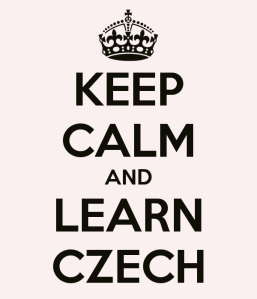
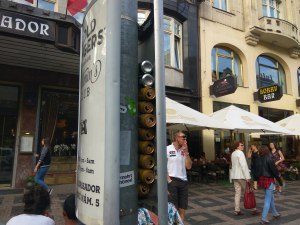

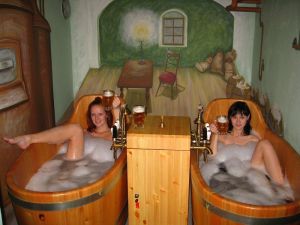
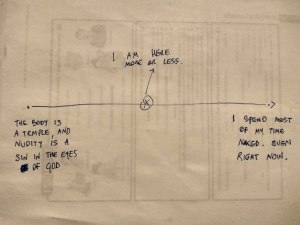



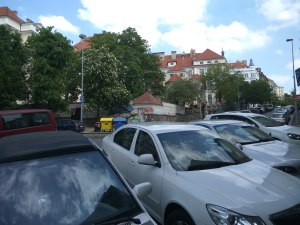
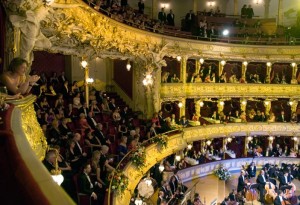
I was in Prague for several days on vacation in the mid 90’s. I enjoy it so much I did not want to go back home to USA.I had a job and children there I had to go back… I am retired now and I want to come back and live there but things are holding me back I still loved Prague it felt like I had come home there.
LikeLike
Hey mate
Great article!
Mate question,do you still live in the Czech Republic with your wife and if so,are you enjoying your new life there?
Reason being I too have a Czech wife and we are considering moving from Australia (my home country) to the Czech Republic to raise our family so my wife can be closer to her family,she currently has no support from my side of the family,and it’s hard work with 2 kids on her own.
I have been there a couple of times for holidays but it’s different relocating for good.
We wouldn’t be living in Prague it would be somewhere closer to louny,
I’m just in 2 minds that’s all,would like to hear another unbiased opinion.
Many thanks
Glenn
LikeLiked by 1 person
Hi Glenn, thank you for reading. Keep in mind it’s a satirical post and from a few years ago.
This may be important to understand. Life in the Czech republic is good. For two people who have job opportunities, life can be relatively easy. Services are cheaper compared to many other places and the quality of life is high (healthcare, internet, shopping, entertainment).
Highways are a hit and miss but traveling by train is easy. The country was experiencing a period of rapid and sustained economic growth, with jobs and money flowing easily.
Prague (and, at a much lesser extent, Brno) offer metropolitan lifestyle options that leave little to be desired. The rest of the country is much quieter and rural, a backwater of european life, and this can be adorable or irritating depending on who you are and your preferences.
However, all this was pre-covid. The pandemic hit the country quite hard and it’s currently still raging. A lot of people have lost their jobs, shops have gone bust, entire sectors (like tourism) are on their knees.
It’s very hard to predict how things will change once (if?) this is over. I have the feeling it will take a long time.
LikeLike
I gotta say. The time obsession isn’t areally a thing. But I can see how a foreigner would see it that way. It’s the organization I believe. Czech really do like to be organized, and it’s great for me as well. However, they do NOT regard time as a thing. Althought the public transport is mostly on time, a Czech person, especially when it comes to the labour market, has no sense of time. ASAP means they will get back to you next week… maybe… and then say they need another week. Getting anything contracted is simply a time waiting game. I hired a guy to make a hole in the wall to a balcony back in March, because I wanted to prepare for summer. And he told me MAYBE IT’LL BE DONE BY THE END OF SUMMER! That’s one hole, which would take me one day (but I can’t do it cus it needs papers) but it would take the guy 5 months to do it! And yep… I am still waiting on his ASAP. But he’s one of many. So like Carmine said…. best to get used to it… relax… and have a beer.
LikeLiked by 1 person
Hi
My husband and I are thinking about moving to Prague. Can you guide me regarding accommodation? We’ll need to rent an apartment at first. From where should we start looking for apartments that are cheaper as our expenses would be high in first few months.
LikeLike
Cheaper? This word doesn’t exist here. There has been a nice housing crisis for a long time and it seems that prices continue to grow in the next year. If you want to be at all costs in Prague, then perhaps only the edge part of Prague, where it is not close to the place and it is out of “major events”. There would be something cheap to find. Otherwise, I recommend the surroundings of Prague, where it is still cheaper. Although you pay a bigger fare, but again on the lease you save enough and sometimes commuting from the surroundings is faster than some parts of Prague (train is faster than tram or metro)
LikeLike
This article is very well written for foreigners. Although he is a bit critical, it is good to know all the pros and cons. However, the Czech Republic and Prague are wonderful places to live, you just have to get used to it, including the weather in Prague. But above all, the cultural and social life in Prague is worth it.
LikeLiked by 1 person